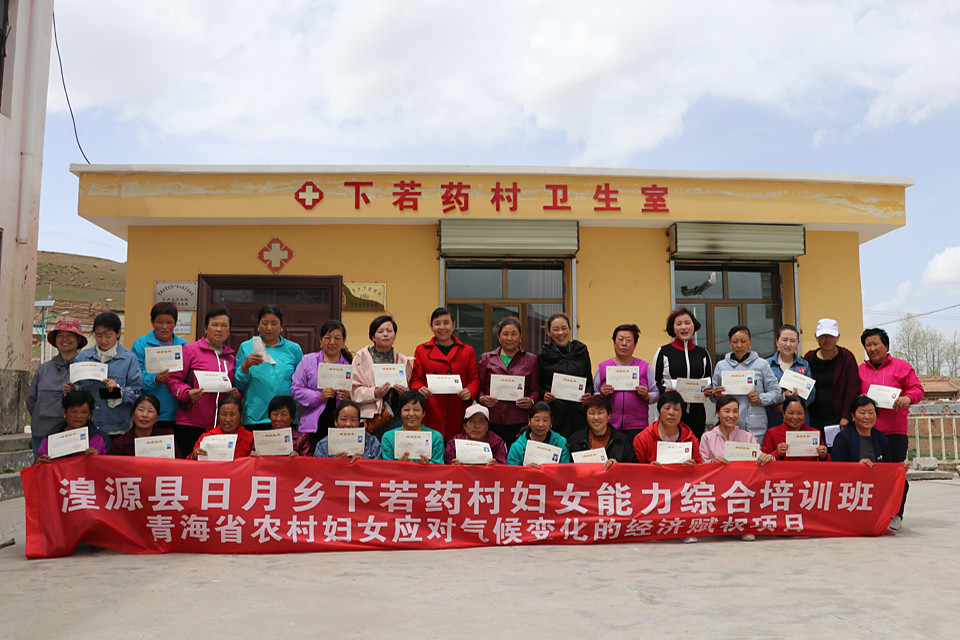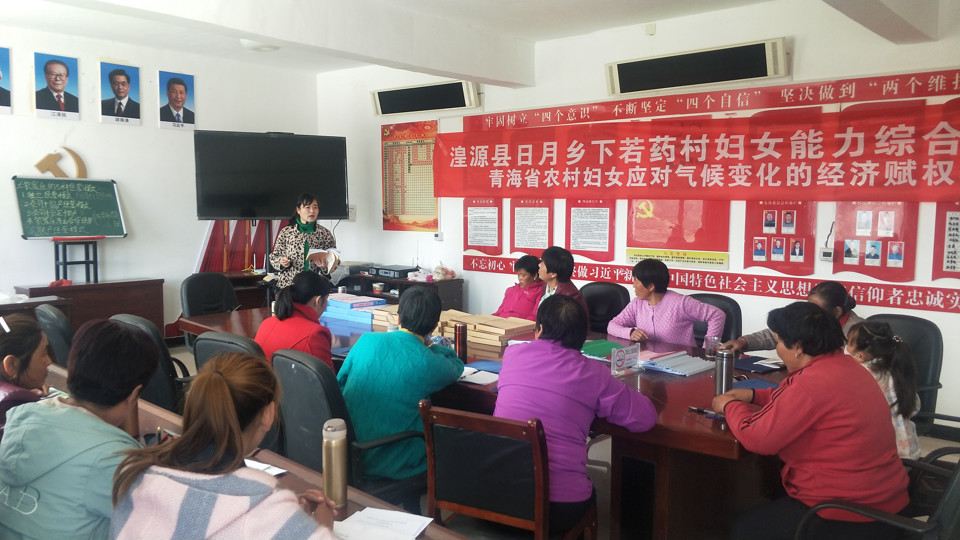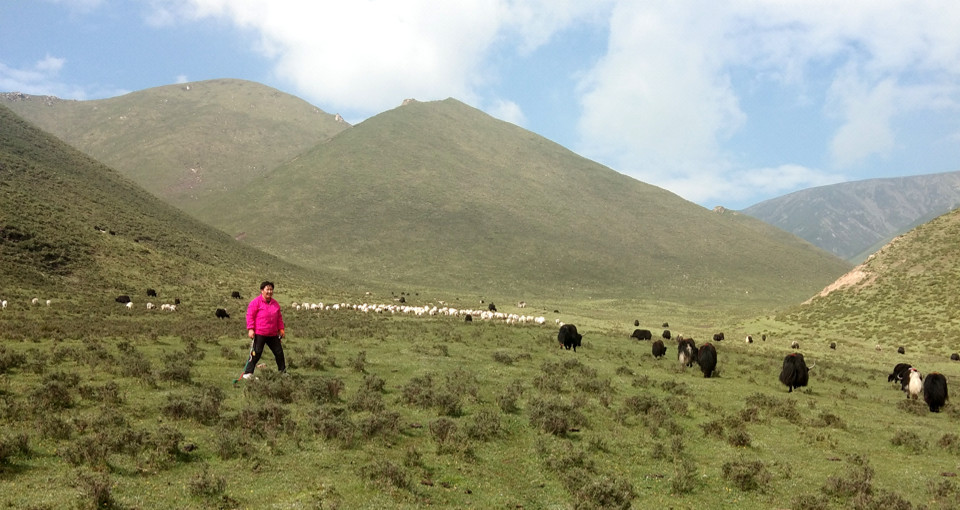In rural China, UN Women helps women farmers gain new skills for navigating climate change
Date:

As the climate crisis continues to adversely impact global resources, rural women working in agriculture find themselves disproportionately vulnerable to environmental challenges. To combat this inequality, UN Women organized a five-day training for women farmers in the rural village of Xiaruoyao, China, from May 25-29.
The training is part of UN Women’s “Strengthening Qinghai Women Farmers’ Income Security and Resilience in a Changing Climate” project, a three-year programme funded by CHANEL Foundation, designed to combat poverty among women farmers by equipping them with social and economic resiliency skills.
Alongside cadres from the Huangyuan County Women's Federation, women farmers learned about topics such as livestock care, agritainment business models and countrywide farming policies.
Thirty women farmers participated in the programme, which is the first field training to take place after the country’s COVID-19 lockdown. Since the COVID-19 pandemic’s onset in January, rural women farmers in China have risen to the challenge of providing emergency front-line support for their villages in addition to their farming work, volunteering for tasks such as performing daily temperature checks and maintaining social distancing.

The Tibetan village of Xiaruoyao, which is located at the foot of Riyue Mountain in China’s northwestern Qinghai Province, is known for its farming and animal husbandry. Villagers raise yak and sheep on the mountainside, oversee grazing, plant barley and harvest caterpillar fungus and herbs to earn their livelihoods. The area acts as the boundary marking agricultural and pastoral areas in Qinghai Province and divides China’s monsoon and non-monsoon zones. It has witnessed countless historical events, from trade deals along the historic Tea Horse Road to wartime alliances and peace agreements.
The village has also suffered from poverty for decades. Since September 2018, it has been one of the communities supported by UN Women’s Qinghai project. It is also one of the 14 priority areas identified for poverty reduction efforts in the “China Poverty Reduction Outline 2011-2020,” a plan in which UN partnerships are strongly encouraged by the Ministry of Commerce.
Xiaruoyao Village’s unique plateau environment and ecological pastures, combined with local households’ traditional lifestyle of raising cattle and sheep, allows for villagers to develop livestock businesses and produce high-quality beef and mutton. But a sudden onset of illness and death among their cattle and sheep recently left villagers floundering.
“I have been grazing since I was a child, and I am familiar with cattle and sheep breeding. However, in the past two years, during the breeding of cattle and sheep, the sudden death of cattle without symptoms occurred several times,” said Ms. Yan Shenglian, one of the training participants.
To help the villagers solve this crisis, the May training featured educational workshops on livestock disease prevention methods. Ms. Yan Shenglian learned that the cause of her cattles’ sudden deaths was an inappropriate feeding method, which caused excessive stomach acid poisoning.
Professionals from the Qinghai Animal Husbandry and Veterinary Vocational and Technical School, such as Mr. Cao Zhenming and Mr. Wang Jie, taught on topics ranging from industry policy standards to the physiology of ruminants. Women farmers studied how to best adapt feeding strategies to the common problems that afflict local livestock breeding, and in one exercise, learned how to scientifically prepare green hay and use total mixed ration (TMR), a feeding method that helps keep cows healthy.

To take advantage of Xiaruoyao Village’s scenic views and its location next to a highway, villagers and the local government have been working to develop its ecotourism and “agritainment,” or agricultural-entertainment, businesses. Ms. Ti Xingyan, a teacher from Qinghai Jiaotong University, taught the women farmers about agritainment resort development and management. Her interactive exercises created a lively atmosphere among participants, who praised her training for being practical and easy to understand.
One of the participants, Ms. Shen Shenglan, said the training made her feel empowered to work outside of her home and be ambitious about gaining more agricultural skills.
“I have never thought in this way before, but through the training sessions, I felt that women can't be trapped at home, being tied to the kitchen sink,” said Ms. Shen Shenglan. “We must improve our capability, learn more and ask more in the future — we can do it!”
At the conclusion of the five-day programme, the women farmers used ingredients brought from their own homes to collaboratively cook a meal to express their gratitude for the training’s teachers, women’s school organisers and project coordinators.
“I am extremely honored to participate in this comprehensive training as the chairperson of the village’s Women’s Federation,” said Ms. Li Ying, the chairperson of the village’s Women’s Federation branch. “This training is a timely rain, which has added wings to the development of ecotourism and livestock businesses. In the future, I will keep improving my capacity and pass on the knowledge and skills to other women in our village, calling for our sisters to come together and improve our livelihood.”